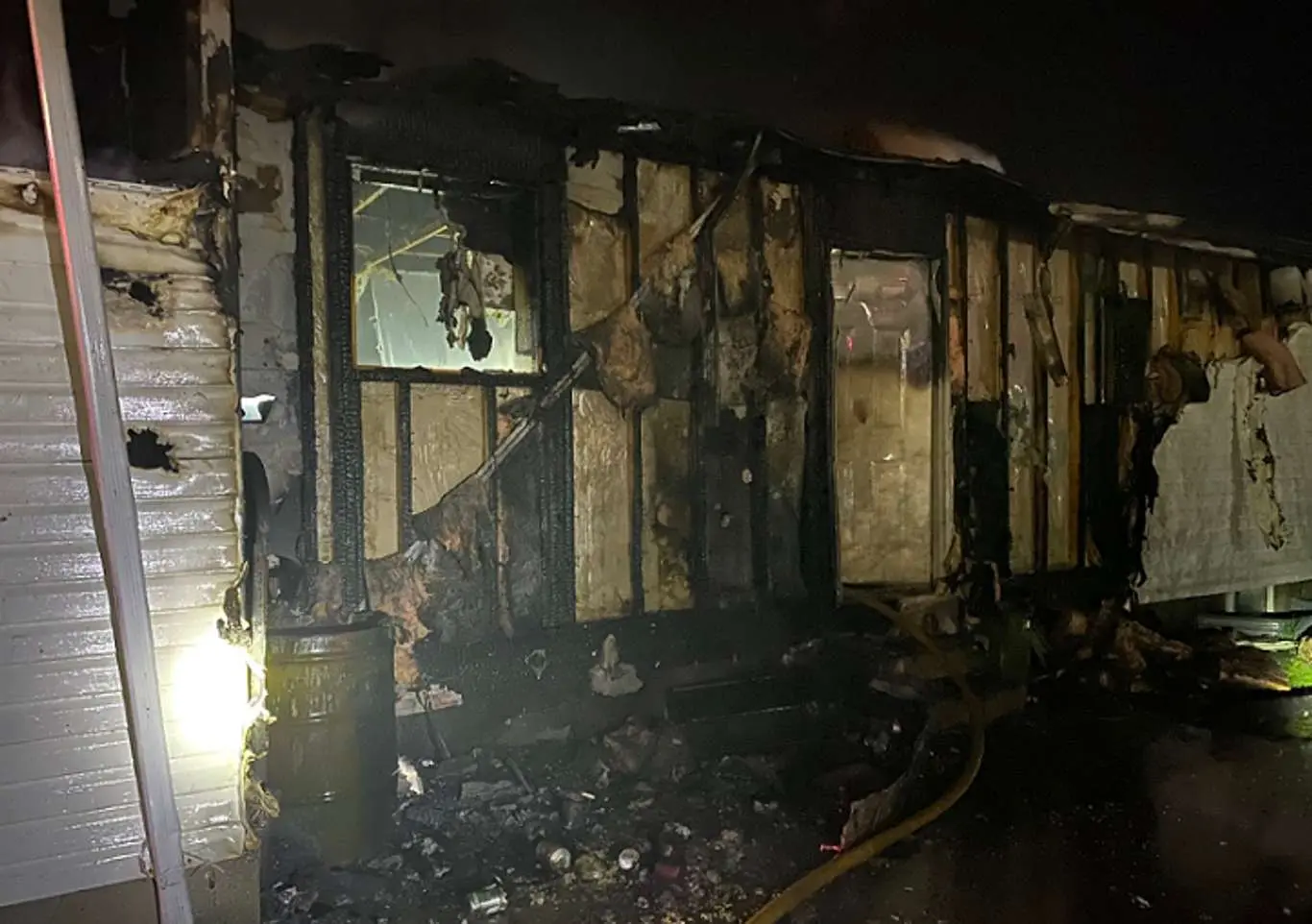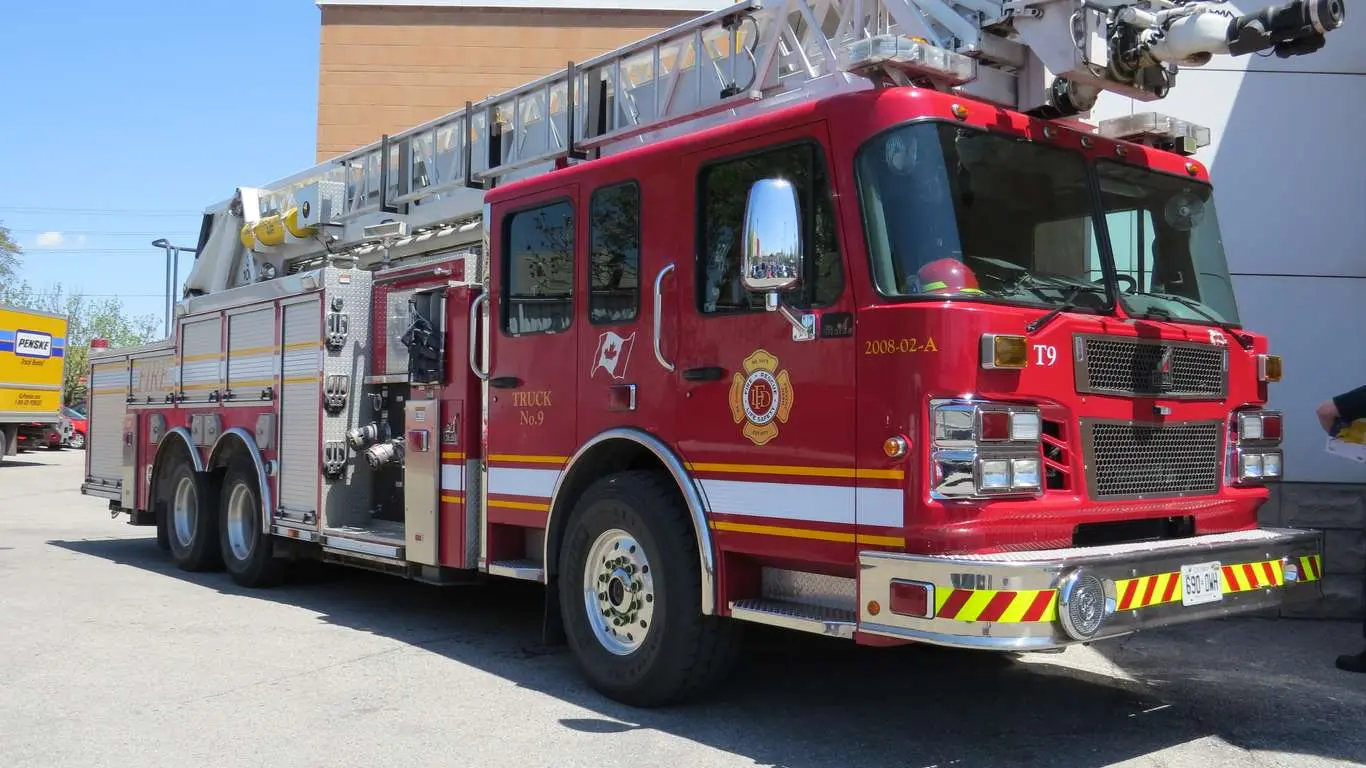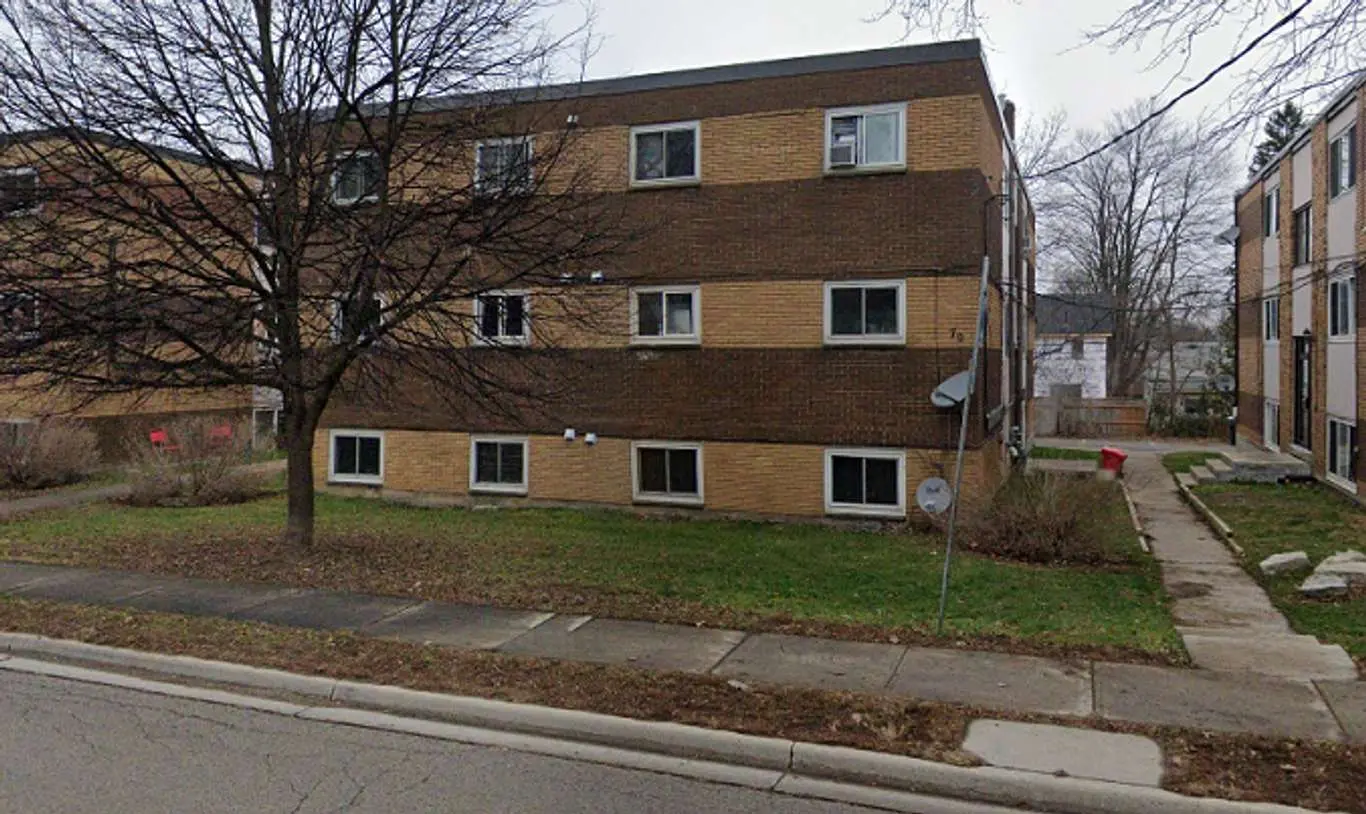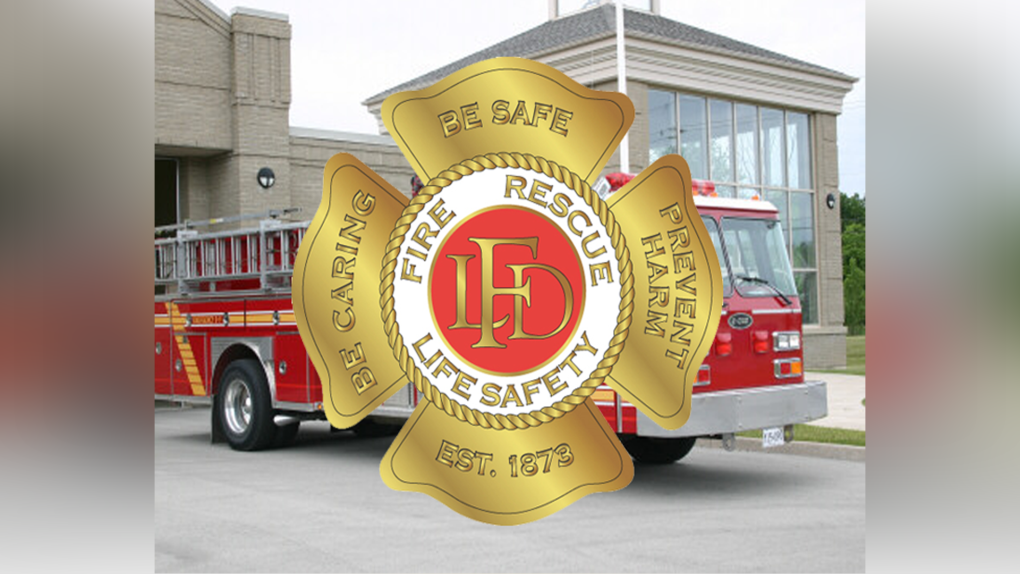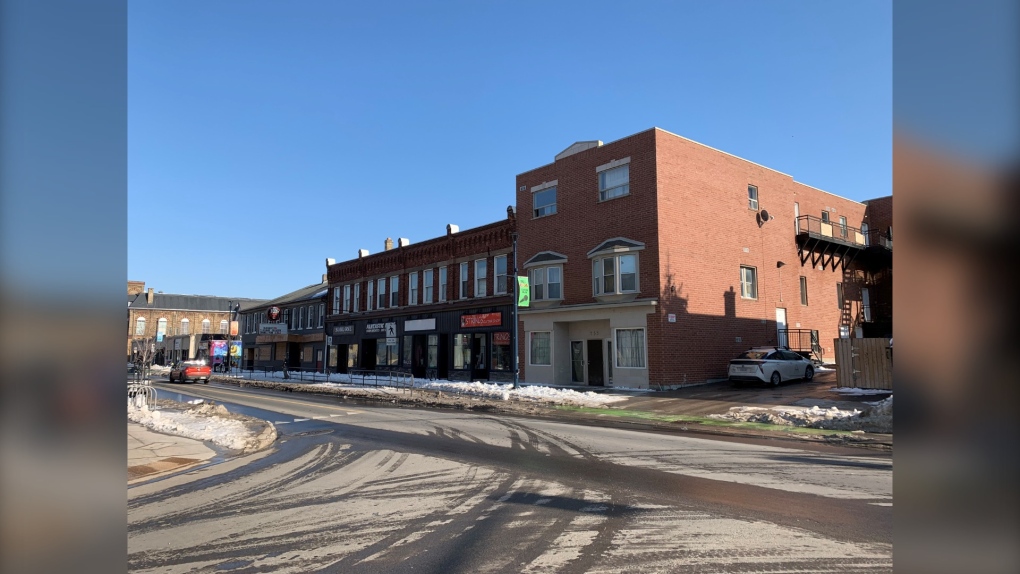Though it hardly made headlines, the destruction of the long abandoned Elgin Pavilion was another step – albeit accidental and perhaps problematic – in the fledgling transformation of a former rehabilitation village for Canada’s war veterans.
Overgrown with weeds, the building burned to the ground Friday night in a blaze London’s fire department says wasn’t accidental.
“It was kind of fortunate they picked the one building they did,” said Dave Crockett, vice-president of facilities management for London Health Sciences Centre and St. Joseph’s Health Care.
But city planner Andrew Macpherson said he’s worried the fire will damage plans to turn some of the cottages in the village into a cultural heritage park.
“We want to keep the foundations and chimneys in good shape. We’re not sure where that is at the moment,” Macpherson said.
By the time firefighters got to the building, south of Parkwood Hospital and near Westminster Ponds, about 9:30 p.m. Friday, flames could be seen from Commissioners Rd., said London Fire Department spokesperson Rick Jefferson.
“It was a set fire but we don’t know how or by whom,” he said. “The whole building was burning when they got there.”
The Elgin Pavilion is one of about a dozen that opened in 1946 and made up the Western Counties Health and Occupational Centre, a rehabilitation centre for veterans.
Later known as Western Counties Wing, the buildings created a village for war veterans that included an indoor swimming pool, bowling alley, gardens and workshops.
“It was a unique concept,” said Crockett.
The complex was one of the first to rehabilitate soldiers suffering post-war stress by creating a peaceful, self-contained community for them, he said. But time, new facilities and changing treatment practices doomed the village.
The hospital owns some of the buildings and land and the city owns the rest.
The city has long planned to demolish its four cottages on the site, including the burned down Elgin Pavilion.
The other three, joined together to create an outdoor education centre for the public school board, now are boarded up and waiting for demolition.
Because of the fire, the city may hurry up the demolition of the other three cottages, Macpherson said.
The city hopes to retain the foundations and chimneys of the buildings, perhaps fill in the area with native grasses and set up historical plaques along walkways to create a cultural heritage park, he said.
“The idea is to celebrate and recognize the importance of the site.”
LHSC has demolished two buildings and has set four aside for future use.
“I love this area,” said Crockett. “It’s a gem in the city. Most people don’t know how special it is.”
Three of the buildings owned by the hospital are rented out to community groups and used for storage.
The fourth is the distinctive wooden and winged Wellington Pavilion, which Crockett hopes will become the showpiece of the site, perhaps as an eco-centre or conference centre for an urban eco-park.
“These are just ideas right now,” he said.
E-mail [email protected], or follow RandyRatlfpress on Twitter.
via The London Free Press.
(Location: Behind Parkwood Hospital)
Though it hardly made headlines, the destruction of the long abandoned Elgin Pavilion was another step – albeit accidental and perhaps problematic – in the fledgling transformation of a former rehabilitation village for Canada’s war veterans.
Overgrown with weeds, the building burned to the ground Friday night in a blaze London’s fire department says wasn’t accidental.
“It was kind of fortunate they picked the one building they did,” said Dave Crockett, vice-president of facilities management for London Health Sciences Centre and St. Joseph’s Health Care.
But city planner Andrew Macpherson said he’s worried the fire will damage plans to turn some of the cottages in the village into a cultural heritage park.
“We want to keep the foundations and chimneys in good shape. We’re not sure where that is at the moment,” Macpherson said.
By the time firefighters got to the building, south of Parkwood Hospital and near Westminster Ponds, about 9:30 p.m. Friday, flames could be seen from Commissioners Rd., said London Fire Department spokesperson Rick Jefferson.
“It was a set fire but we don’t know how or by whom,” he said. “The whole building was burning when they got there.”
The Elgin Pavilion is one of about a dozen that opened in 1946 and made up the Western Counties Health and Occupational Centre, a rehabilitation centre for veterans.
Later known as Western Counties Wing, the buildings created a village for war veterans that included an indoor swimming pool, bowling alley, gardens and workshops.
“It was a unique concept,” said Crockett.
The complex was one of the first to rehabilitate soldiers suffering post-war stress by creating a peaceful, self-contained community for them, he said. But time, new facilities and changing treatment practices doomed the village.
The hospital owns some of the buildings and land and the city owns the rest.
The city has long planned to demolish its four cottages on the site, including the burned down Elgin Pavilion.
The other three, joined together to create an outdoor education centre for the public school board, now are boarded up and waiting for demolition.
Because of the fire, the city may hurry up the demolition of the other three cottages, Macpherson said.
The city hopes to retain the foundations and chimneys of the buildings, perhaps fill in the area with native grasses and set up historical plaques along walkways to create a cultural heritage park, he said.
“The idea is to celebrate and recognize the importance of the site.”
LHSC has demolished two buildings and has set four aside for future use.
“I love this area,” said Crockett. “It’s a gem in the city. Most people don’t know how special it is.”
Three of the buildings owned by the hospital are rented out to community groups and used for storage.
The fourth is the distinctive wooden and winged Wellington Pavilion, which Crockett hopes will become the showpiece of the site, perhaps as an eco-centre or conference centre for an urban eco-park.
“These are just ideas right now,” he said.
E-mail [email protected], or follow RandyRatlfpress on Twitter.
via The London Free Press.
(Location: Behind Parkwood Hospital)

